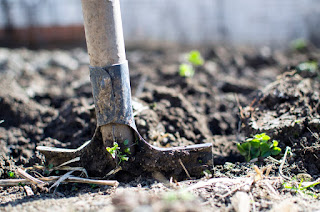Technical and legal challenges for next plant
breeding generation
The new plant breeding
technologies advances (NPBTs) have as of late developed as ground-breaking
devices with regards to ‘green’ biotechnologies. Cisgenesis and genome altering
possibly permit to get pathogen-resistant plants or plants with upgraded
subjective qualities by presenting or upsetting particular qualities in shorter
circumstances contrasted with conventional rearing projects and by methods for
negligible alterations in the plant genome. The specialized difficulties which
may hamper the utilization of cisgenesis and genome altering to this perpetual
plant, specifically concentrating on the bottlenecks of the
Agrobacterium-interceded quality exchange.
As of
late another age of strategies alluded to as ‘new plant rearing procedures’.
These procedures are pulling in light of a legitimate concern for lawmakers,
partners, and natives because of the progressive effect they may have on the
horticulture without bounds. The genome altering approach was right off the bat
used to thump out undesired qualities through the acceptance of DNA breaks at
target locales by methods for ‘guided’ endonucleases took after by the
non-homologous end joining (NHEJ) repair process. This component is in charge
of the additions or erasures of nucleotides at the objective locales which may
cause hereditary changes bringing about the hushing of the undesired quality.
Among genome altering innovations, Zinc Finger Nuclease.
The new plant rearing advancements have raised much
consideration, as these methodologies have exceedingly intriguing possibilities
in reproducing as well as could defeat numerous moral limitations, being
systems that copy unconstrained occasions. With respect to established GMOs,
likewise, for the NPBT items, the administrative standards of countries centre
around the procedure utilized. The diverse parts of the use of cisgenesis and genome
altering to organic product trees alluding specifically to a grapevine,
not just for the huge monetary esteem this yield has around the world.
The
Agrobacterium-interceded quality exchange has risen as the most broadly
utilized technique in plant hereditary designing, albeit complex frameworks for
these new advances have been created in view of various develops, conveyance
and articulation mechanisms.6 However, the setting-up of productive change
methods in woody organic product trees requires to streamline a few specialized
perspectives concerning tissue culture. One of the fundamental constraining
variables, normal to the vast majority of the enduring natural product crops,
is the restricted recovery capacity of the explant utilized as a part of
co-culture with Agrobacterium.





Comments
Post a Comment